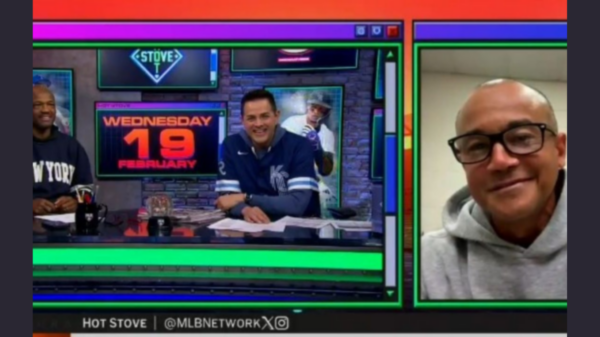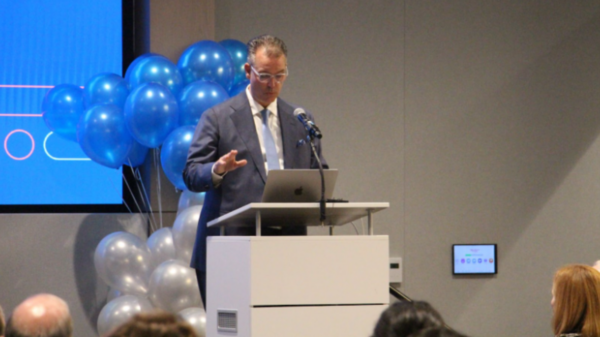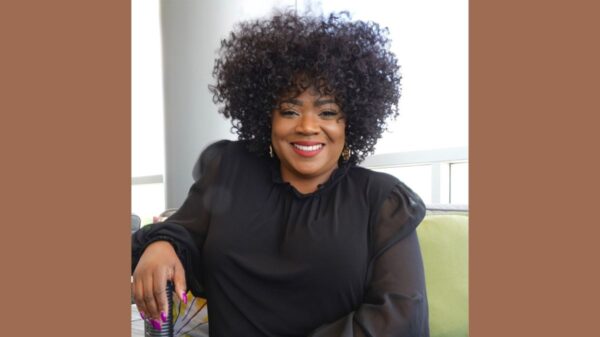By Ralph E. Moore Jr., The Moore Report
The AFRO American News

The Moore Report
The families of Negro League baseball players are calling for a national day of recognition and attention for the Negro Leagues, the Black ballplayers who were excluded because of race from Major League Baseball teams. The descendants have come together to form the Negro Leagues Family Alliance (NLFA), established in February.
NLFA is calling on Major League Baseball (MLB) to establish May 2 as annual “Negro League Day” in all 30 Major League Baseball parks across the nation, marking the day the first Negro League game was played. The contest that spring day pitted the Indianapolis ABCs and the Chicago Giants against each other.
The family members that makeup NLFA represent ten Negro League players: Dennis Biddle, Bill Foster, Rube Foster, Josh Gibson, Pete Hill, Buck Leonard, Fran Matthews, Ted “Double Duty” Radcliffe, Norman Thomas “Turkey” Stearnes and Ron “Schoolboy” Teasley, who is 96 years old. Teasley was drafted by Major League Baseball’s Brooklyn Dodgers in 1948 after playing for the New York Cubans of the Negro League. His daughter, Lydia Teasley, is a member of NLFA.
Another member of the group is Sean Gibson, great-grandson of Josh Gibson, who lived from Dec. 21, 1911 to Jan. 20, 1947. Gibson was a phenomenal catcher, whose career was primarily in the Negro Leagues. Gibson is considered among the best power hitters and catchers in baseball history. In 1972, he became just the second Negro League player to be inducted in the National Baseball Hall of Fame in Cooperstown, N.Y.
The alliance’s reasons for organizing are “to preserve the legacy of the Negro League and help grow the game in America’s inner-cities.”
Vanessa Rose, granddaughter of Turkey Stearnes, who played outfield for several Negro League teams (starting with the Nashville Giants in 1920 and ending with the Chicago American Giants in 1938) is quoted as saying, “we aim to provide resources, education and opportunities to create a unified community through the beautiful game of baseball.
“Our distinct personal connections to the Negro Leagues allow us to offer a voice rooted in ancestry that will inspire others to strive to achieve and maximize their potential,” she said of the Family Alliance’s mission, a goal of wrapping education, advocacy and inspiration in a long-ignored history lesson.
Additional initiatives from the alliance are to set up a website of historical information on the Negro Leagues and to participate in the Reviving Baseball in the Inner City (RBI) program.
A side story, according to Bill Ladson of Major League Baseball: “The date was July 25, 1966. [Ted] Williams [of the Boston Red Sox] entered the Hall of Fame. That day [he was inducted] and made a speech that still resonates around the baseball world. He used his induction speech as an opportunity to speak on behalf of Negro League players. He felt that stars like Satchel Paige and Josh Gibson had largely been overlooked and should be in Cooperstown. Williams knew about their talents, as he competed against Negro Leaguers during barnstorming games starting in the early ’40s, when Major League Baseball was still segregated.
“I hope that someday, the names of Satchel Paige and Josh Gibson can … be added to the symbol of the great Negro League players that are not here only because they were not given a chance,” Williams told the crowd that day.
Finally, a new book has just been released with an intriguing title, “Pete Hill: Black Baseball’s First Superstar,” by Bob Luke. It comes highly recommended by Hill’s great-nephew, Ron Hill. He has written on the book’s back cover liner notes, “A forgotten ball player comes to life in Bob Luke’s book.”
Hill started playing at 17 and had a baseball career as an outfielder and manager that spanned 1889 to 1920. I strongly recommend the book.
The NLFA reports there were 130 Negro League teams, 3,500 players and of them, 50 players are still alive. Fans should call, write and nag owners of Major League Baseball parks in their area to set up Negro League Baseball Day every May 2, starting in 2023.
The players changed America–we owe it to them to remember that. For further information about the Negro Leagues Family Alliance, contact Sean L. Gibson (Josh Gibson’s great-grandson): info@negroleaguesfamilyalliance.com 412-589-1906.
This article originally appeared in The Afro.









You must be logged in to post a comment Login